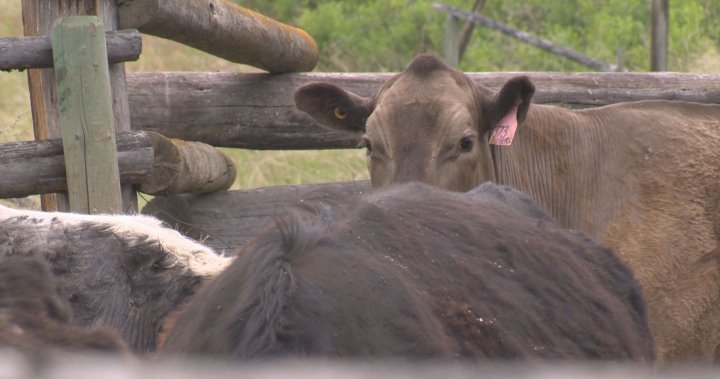
‘Not normal’: B.C. farmers, crops, livestock feeling the impacts of drought
Global News
As of Thursday, four of the province's 34 water basins were in Level 5 drought conditions: Fort Nelson, the Bulkley Valley, West Vancouver Island and East Vancouver Island.
As British Columbia gets drier and drier, some farmers across the province are concerned that their crops, livestock and wallets will continue to do the same.
While some in the Okanagan have “kind of learned to live with drought,” BC Cattlemen’s Association president Brian Thomas said farmers in other parts of the Interior, particularly in the north, are struggling with “not normal” conditions.
“It’s still fairly early in the year for it to be this dry up there,” he told Global News, pointing to the Cariboo and Peace regions.
“North of Williams Lake, a lot of it is dryland farming … they rely on the snowpack and stuff like that. They don’t know they don’t have sprinklers and stuff like that. Those guys are really taking the hit.”
Some farmers are being forced to sell their cattle early or proactively cull some of them, he added.
British Columbia ranks drought conditions on a scale of one to five, with the latter meaning almost certain adverse effects on communities and ecosystems.
As of Thursday, four of the province’s 34 water basins were in Level 5 drought conditions: Fort Nelson, the Bulkley Valley, West Vancouver Island and East Vancouver Island. Another 18 were at Level 4, meaning two-thirds of the all water basins were ranked in the categories of most serious concern.
Emergency Management Minister Bowinn Ma called on the public to follow all local water restrictions set by municipal governments and First Nations, and when possible, exceed them.











